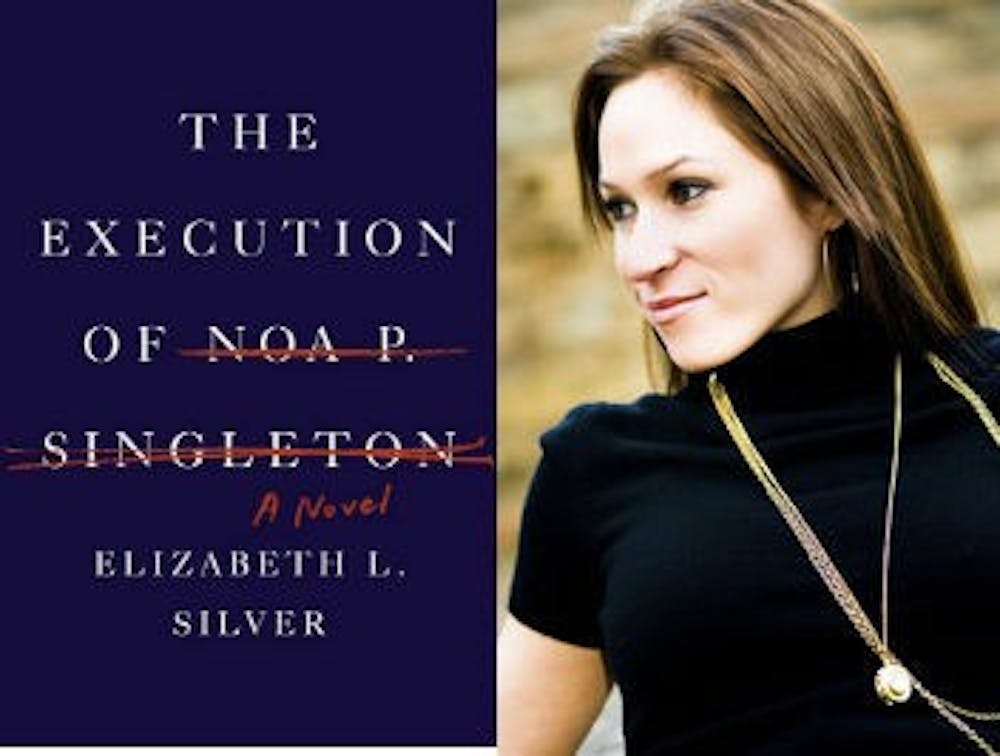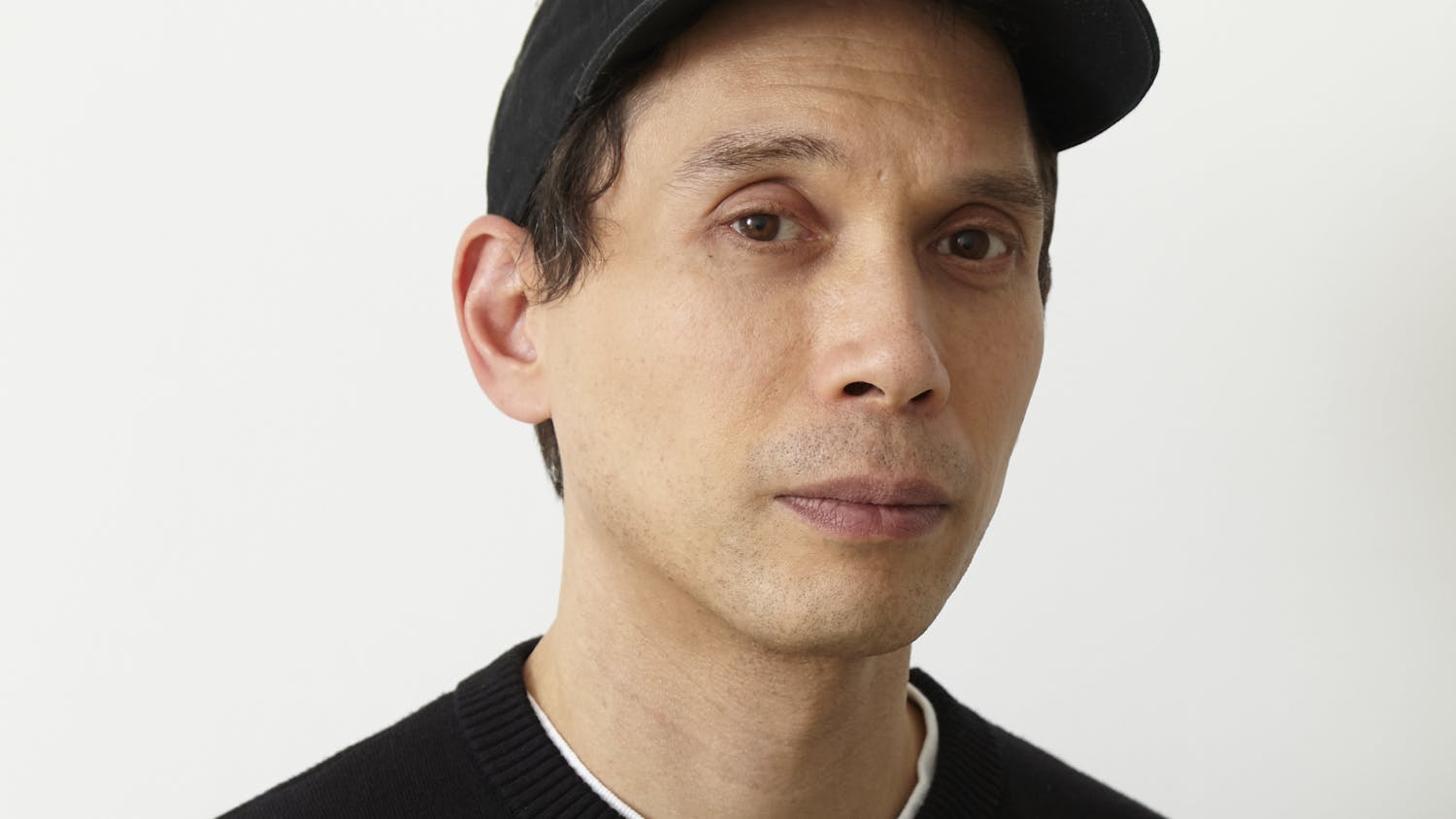Street: It seems like you switched careers a bunch of times before writing the book. What was that like given Penn’s culture, where everyone is obsessed with their first job? Elizabeth L. Silver: Yea, I remember that. It’s a very preprofessional school. At Penn, I studied creative writing and knew that at point I wanted to become a novelist and a writer. Part of it was my family or a Penn education, I wanted to have a secure job. I had no idea if I was going to make it. I contemplated law school even in college. I lived in a house with eight girls and all but one of us took the LSAT. Only two wound up going to law school. Everybody took some sort of postgraduate admissions test. I definitely didn’t want to go until I was ready, until I knew I was going for the right reasons. So I did basically all the writer day jobs. Right after college, I taught ESL in Costa Rica, worked in publishing in New York. I got my MFA, I taught at Drexel and St. Joe’s. And all this is while I was pursuing a career in writing, testing all those writer related jobs. After I tried many of them, I realize I don’t love this. I don’t have much time to write. I wanted to flex that other part of my brain. I went to law school only after I had gone through all those other jobs. I went in hoping it was going to be a backup but I didn’t know if it was going to be. And I’m really glad I went because I enjoyed law school so much because of that. I wasn’t as stressed as I would have been going in if this was everything.
Street: You weren’t looking for a corporate law job... ELS: No, I had zero interest in going that route. I very quickly fell in love with criminal law. I love trial advocacy. I thought “Okay, O’ve tried publishing, teaching. I actually thought even If i never publish I really enjoy criminal law. I was very excited that for the first time I found something that could coexist with a writing career. Criminal law, unlike other types, brings a narrative. It’s about people, the story, it’s about telling a perspective of a story and that to me felt like writing fiction.
Street: Did you work as a lawyer after law school? ELS: I had a clerkship for two years in Texas and I was never sure if I was going to practice. It was at the Texas Court of Criminal Appeals. It fed a lot of the book in a way I never anticipated. The Texas Court of Criminal Appeals is the highest court for criminal matters. I drafted opinions for one of the nine justices for two years and the first case I had was a death penalty case. I was confronted head on with these issues. I worked on three other death row cases in the next two years.Street: When did you start writing full time? ELS: I took a class in capital punishment my final semester of law school and was introduced to the clemency petitions and that fed some of the book. The summer after I graduated law school before the bar exam, I started writing the novel and couldn’t put it down. I had to put it down to study, which was quite a shame. When the clerkship ended, I focused exclusively on the book for a year and half until I felt it was ready. Then I worked again as a lawyer for about a year and now I’m writing full time.
Street: Penn hasn’t changed that much it seems. It’s interesting that the job you thought wasn’t the most relevant turned out to be so important. ELS: Texas was a place I didn’t really expect. I would never have learned death row elsewhere. Before, I wrote about family issues, short stories and completely nonlegal issues. In that last semester, I never anticipated an infusion of law in my writing. It was the first of anything I’ve written that sold.
Street: Yea, things have a way of fitting together. ELS: You never know, but I was someone who wanted to plan it out.
Street: We have some questions about Penn back in the day. What was the Kelly Writer’s House like when you were there? ELS: The writer’s house started in the mid 90s. It hadn’t been around that long when I was there. I loved it. I was a writing advisor, I took writing classes there, I went to so many events. It was such a great community which is so important for anyone who feels connected to the arts, whether they want to pursue a career in it or look at it for identity. I loved it, I wish it existed outside of universities. It provides a community that is so necessary for writing. When I lived on the east coast, I came back for some alumni events.
Street: Campus has changed a lot... ELS: I lived on 40th and Locust for a couple years but that grocery store, the Fresh Grocer, that was put in my senior year. And I was like OMG this would have made my life so much easier. We had to walk far to get a grocery store. If only it had been there a few years ago.
Street: We hear you wrote for Street. What was your involvement? ELS: I wrote theater and movie review primarily. I did a lot of theater my whole life and it was great. I got to go to so many shows to review them. It was definitely a highlight of my Penn experience.Street: What was moving to Costa Rica after graduation like? ELS: It was so much fun. A lot of people were teaching abroad or working and I think it’s a great path. It gives you some time for intellectual, creative, personal exploration. I didn’t want to go where I knew anybody and I wanted to become fluent in Spanish. I had studied it on paper but I wanted to go somewhere where I had to get a job and wasn’t part of a program. It was an extraordinary period. I was there during 9/11 which cut everything short. I highly recommend the opportunity if you have it to teach abroad or do international employment. It gave me a great foundation for what I did afterward. I don’t know how much I use what I did but it’s kind of finding yourself and putting yourself in a new environment and you don’t get that opportunity when you’re older. You can go to New York or DC afterward.
Street: There are two types of people at Penn... ELS: Wharton and Other?
Street: What were some of your favorite spots on campus? ELS: It’s so long ago but I loved the Kelly Writer’s House. That bar that everyone goes to..Smokes. I loved Smokes. I love the fine arts library. There was a bagel shop right next to Smokes (Ed. note: Bring this back) that was great late at night or the morning after. I loved the White Dog Cafe and the bookshop next to it, Avril 50... I loved the place. Mad Mex. I went there a ton. We went there a lot. My Penn friends are to this day my closest friends. They’re good people. My group of friends lived in the same house for multiple years and they still feel like family. I miss it. Hopefully, I can come visit in the fall.
Street: Are you working on another book right now? ELS: I’m now working on a lot of short pieces and doing a little touring. I’m about to jump into a new book.
Street: What sort of schedule do you have when you’re writing full time? ELS: I think that part of it has to do with my type A personality, the person who went to law school. I approach it as giving myself specific hours to get a specific amount of work down per day. I look at it very structured. I like to finish a day’s work in the middle. If I’m in the middle of a paragraph, I often stop so you can pick it up the next day. That way, you’re on a continuous flow. It helps elimination frustration in the morning. It’s still hard but I do try to end the previous day in the middle so I don’t struggle as much the next day.
Street: That sounds like it could work for papers! ELS: That’s true! I don’t think I did that with papers, though.
Street: What’s the next book about? ELS: It’s completely different. It will about a family: a Jewish family drama set in New York
Street: That’s very relatable to Penn students. ELS: That’s true!







